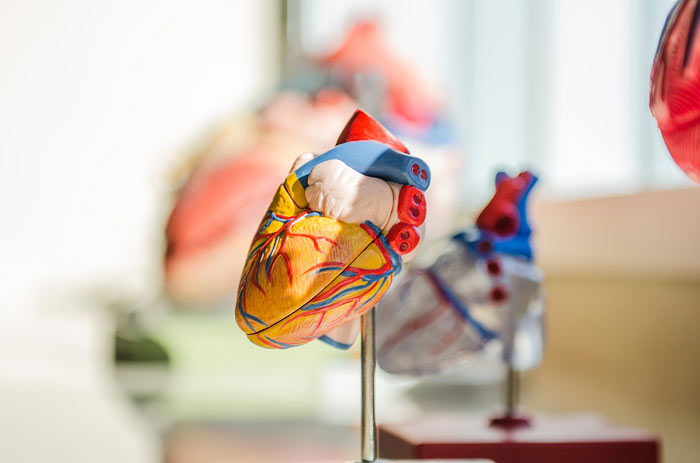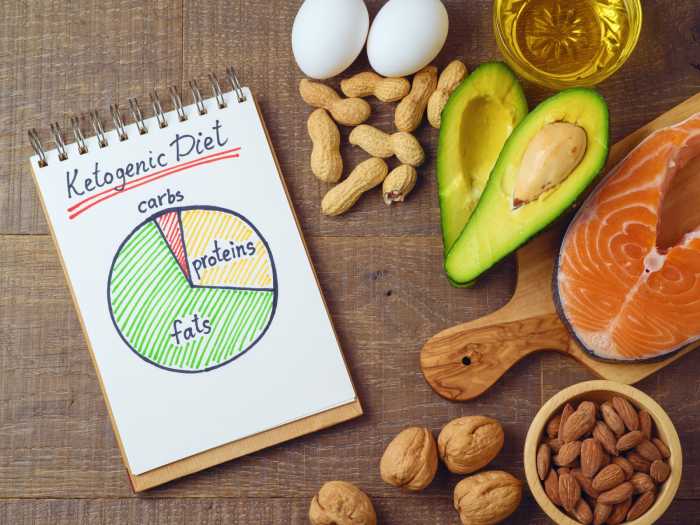You may believe saturated fat is extremely bad for your health and figure – yet it is not so! Although you have heard more than once that you should avoid fat if you care about your physical condition, actually it is wrong, at least partially wrong. Some kinds of fat judiciously introduced to your diet can do much good for your health.

The fat study
As emerged from a study published in the Netherlands, diets which exclude saturated fats contained in, for instance, raw butter, properly fed beef, and other healthy animal foods, in favor of carbohydrates found in bread, pasta, and bagels, give higher chances to develop cardiac diseases.
Saturated fat gained his awful reputation in the mid-1950ies with a study by Dr. Ancel Keys that linked the intake of saturated fat to terminal cardiac diseases. Later his theory was disproved, but not before it launched a campaign of denigrating saturated fat for decades from then on.
The thing is, Keys’ paper embraced his research in seven countries where a high level of saturated fat followed closely a high rate of cardiac-related deaths. But it turned out that he discounted medical information from 16 more countries because they showed a very different picture. When the then-current data from all the countries have been pooled, the results showed that a large consumption of saturated fat equates to a very low risk of cardiac troubles.
But before the more accurate research prevailed, nutrition experts backed Keys’ conclusions and urged the population to purge their diets of butter, eggs, red meat, dairy, and other sources of fat that were declared to be clogging arteries. Many people still believe that theory.
But happily we are moving on with the times, and the real value of fat becomes known. Over the last decades we grew in belief that the consumption of fat should be rigidly controlled or even excluded altogether. Yet there are beneficial fats that are necessary for the proper functioning of the body and the brain.
What’s more, there are certain nutrients, among them vitamins A, D, E and K, which can be solved and absorbed with fat only. Besides, fats are generally pretty busy in the body – they participate in building cells, generating energy, carrying oxygen over the body, and the list is much, much longer. Just think that such a useful substance was made such an omnipotent monster.
The Seven Countries study

About the middle of the last century there appeared a highly popular study referred to as the Seven Countries Study – it dealt with the correlation of the intake of fat and cardiac diseases. It was one of the early studies into the matter; now it’s understood that this correlation is a lot more complicated than it was considered those days.
So the Seven Countries Study carried certain faults – first of all, it was based on people having traditional Mediterranean eating habits, and the Mediterranean diet doesn’t contain much saturated fat but quite a lot of monounsaturated fat. That went for a definite picture which, unfortunately, when extrapolated to countries with different eating habits, became more blurred.
The study used data on margarine consumption as a proxy for dietary fat intake, which may have contributed to the original conclusions that dietary fat was harmful. Margarine at that time was typically made with hydrogenated vegetable oils, which contain trans fats that are now known to be harmful to health.
Further investigation into the issue revealed that the particular kind of fat plays a more significant role than the overall quantity of fat in the diet.
Which fats are the best?

There are several types of healthy fats that can be incorporated into a balanced diet:
Monounsaturated fats: These are found in foods such as avocados, olive oil, nuts (e.g. almonds, cashews, peanuts), and seeds (e.g. pumpkin seeds, sesame seeds). Monounsaturated fats can help reduce the risk of heart disease and improve insulin sensitivity.
Polyunsaturated fats: These are found in foods such as fatty fish (e.g. salmon, sardines, trout), flaxseeds, chia seeds, and walnuts. Polyunsaturated fats are important for brain function and may help reduce inflammation and improve heart health.
Omega-3 fatty acids: These are a type of polyunsaturated fat that are particularly important for brain and heart health. Omega-3s are found in fatty fish, flaxseeds, chia seeds, and walnuts.
Saturated fats: While it is still generally recommended to limit saturated fat intake, certain sources of saturated fat can be healthy. These include sources such as grass-fed beef, coconut oil, and full-fat dairy products.
Trans fats: It is best to avoid or limit consumption of trans fats, which are found in processed and fried foods. Trans fats have been linked to an increased risk of heart disease.
Fats and weight loss

Quite a few people found it worth their while to become “fat-adapted,” having discovered that their diet, rich in fat and poor in carbohydrates, helped them drop excessive weight. A diet along these lines is usually known as a ketogenic diet; it is grounded on the idea of a very low level of carbohydrates in conjunction with a good amount of healthy fats – a combination that plunges the body into a state of ketosis.
When in this state, the body receives energy by splitting fat instead of using carbohydrates – and since stored fat gets used up, the body drops weight. Also, it doesn’t need a lot of carbohydrates derived from food anymore.
Are carbs your enemy?
By the way, those on keto diet are less likely to have cravings because they reduce the amount of carbs. This is because a ketogenic diet is very low in carbohydrates, typically providing less than 50 grams of carbohydrates per day and high in fat, which can help promote satiety and reduce hunger.
When you eat carbohydrates, they are broken down into glucose and absorbed into the bloodstream, causing a rise in blood sugar levels. This triggers the release of insulin, a hormone that helps to transport glucose from the bloodstream into cells for energy use.

At the same time, when you eat too many carbohydrates, particularly refined carbohydrates like white bread or candy, your body may produce too much insulin, causing a rapid drop in blood sugar levels that can lead to cravings for more carbohydrates.
In contrast, when you follow a ketogenic diet and restrict carbohydrate intake, your body switches to using fat for energy instead of glucose. This can help stabilize blood sugar levels and reduce insulin spikes, which can, in turn reduce cravings for carbohydrates and overeating in general. What is more, this way, you reduce the risk of developing diabetes.
Actually, don’t take it as a strong urge to get rid of carbs – they are healthy, especially those coming from vegetables and nuts. You may find it worthwhile to cut down on starchy carbs in bread and pasts or processed carbs. Green vegetables and fruit full of fructose will always be all right, especially if you eat them whole – and, incidentally, let the fiber lower the insulin response. But bear in mind that a lot of fruit juice will bring in a lot of sugar, so go easy on it. But you can take as many vegetables as you want.
Can anyone go keto?

Although a ketogenic diet with its beneficial fats and not too much-refined carbohydrates from bread, pasta, and sweets would really suit most people, introducing it may turn out to be not as easy as it seems at first sight.
There are medical issues and medicines that won’t go well with a ketogenic diet; to avoid health complications, you had better take up the idea with your healthcare specialist and make sure the new diet will comply with your health condition.
On the other hand, a ketogenic diet can really go a long way to help people shake off excess weight and initiate certain health improvements, it might prove to be so advantageous as a long-term proposition. When you consider any remarkable dietary change, you will do well to consult a respected dietitian or healthcare specialist to make sure your selected diet best fits your customary lifestyle.










